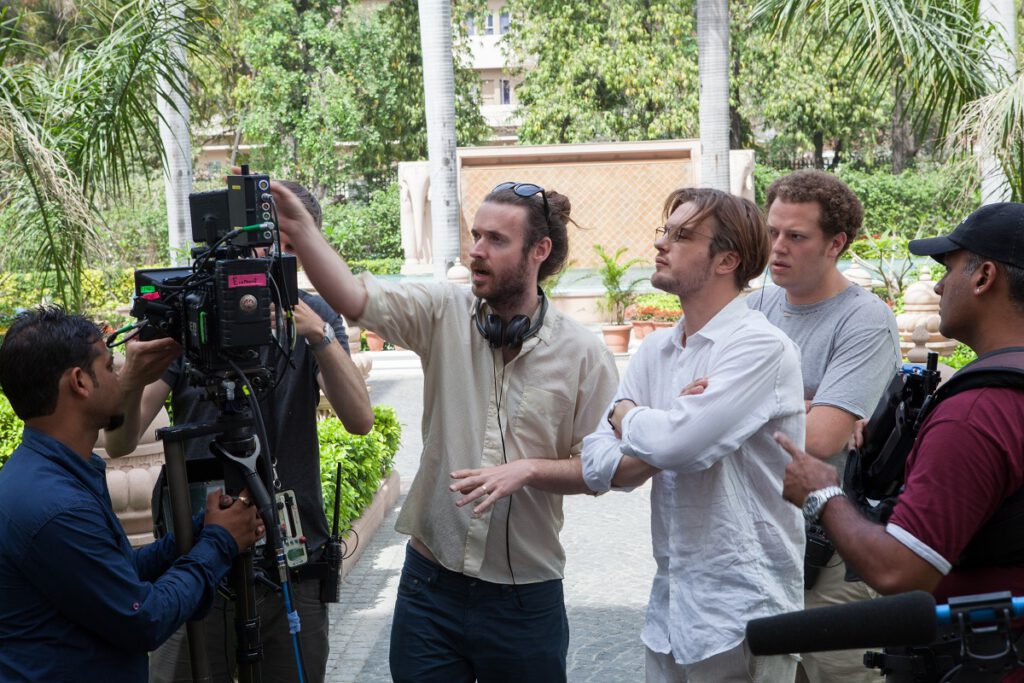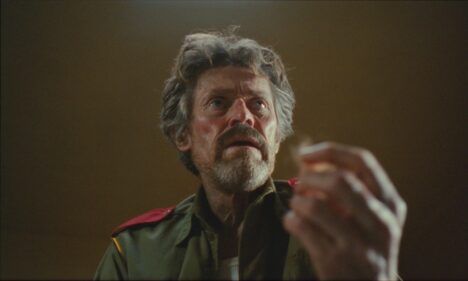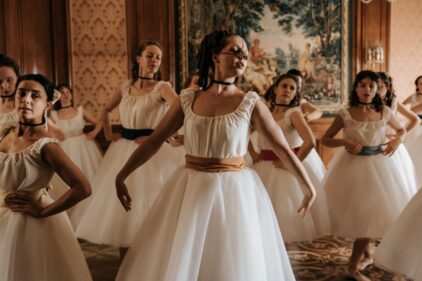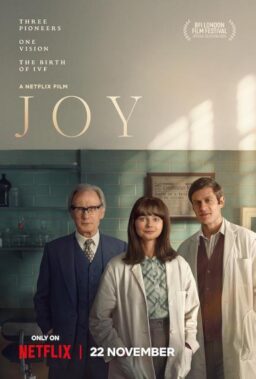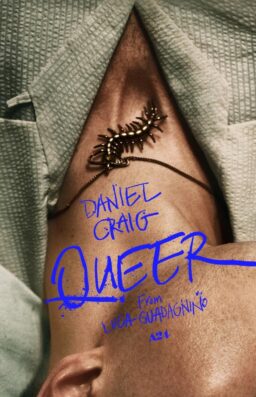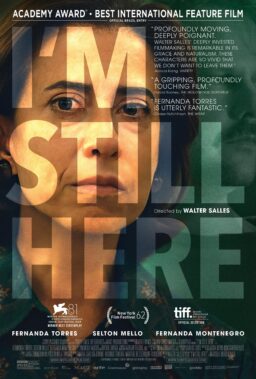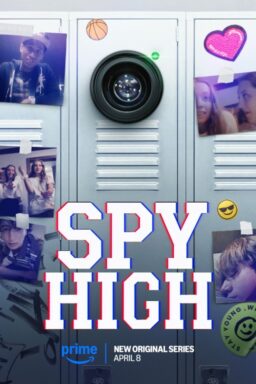Writer/director Mike Cahill returned to Sundance this year (following the success of award-winning “Another Earth” there) with the ambitious “I Origins,” a film about a scientist who tries to chart the evolution of the human eye to disprove its importance in the spiritual world. Our eyes make us unique and so many religions have used the eye as proof of the divine creator. What if someone could disprove that? The great Michael Pitt, who just finished a fantastic stint on NBC’s “Hannibal,” stars as Ian Grey, the doctor who sets out on a scientific path and finds himself on a spiritual one. Cahill’s “Another Earth” star Brit Marling plays Grey’s partner in the lab and Astrid Berges-Frisbey plays the model with the unforgettable eyes that change his life.
Cahill and Pitt sat down in Chicago last week to discuss the project, and one can instantly sense the collaborative approach the two have to filmmaking. When actors and directors are paired for interviews, it often leads to a disconnect as the two fields inherently come at the process from different angles. There was no disconnect with Cahill and Pitt. They’re clearly friends and collaborators with a deep mutual respect and true passion for their art.
What was the origin of this project and your ideas in
general? They feel like the product of someone who has practice or knowledge of
metaphysical phenomena.

MIKE CAHILL: This idea, in particular, came from a dream I had, something
like 12 years ago. I woke up searching for a pen, found a piece of paper, and
wrote one sentence on it: “The eyes of the dead come back in newborns.” Threw
it in a drawer. That seed started growing inside of me. There were a bunch of
different influences that made me think about it. I can tell you a couple. One
was the story of the Afghan girl on National Geographic. It’s a pretty well-known
story. The photograph was taken in 1987 of that young girl—didn’t know who she
was. Every day from the moment that was published to 17 years later, he’d get
so many letters—“Who is that girl?” The only way they found her eventually was
through her eye biometrics. And through her very unique iconic eyes. I merged
that with this thought: What if someone tried to track down someone they lost
through the eyes?
Another piece of inspiration…there are so many; it’s like
where you pull from the ether. I was on Briony, near the Adriatic Sea, off of
Croatia. I was with my wife. And there’s a site where there are all these Roman
ruins. And there’s a spot where you see where the houses were. There are all
these stones. It was a whole civilization. And it was gone. Right on the beach
next to it, there are all these dinosaur footprints. I looked at one, looked at
the other, and it occurred to me that this civilization had risen and fallen
and didn’t know that dinosaurs existed. Their kids played in the puddles of
those footprints but they never knew the significance. They didn’t register
what was going on. What is our civilization’s dinosaur footprints? What is
right in front of our noses that we don’t understand the significance of? If
you look at the eye or you think about the eye in organized human civilization,
it’s held us captive in almost every field—scientific, spiritual, poetry.
It was a lot of abstraction until I met this guy sitting to
my right [Michael Pitt]. I had a lot of ideas and I met Michael at a general
meeting in Brooklyn. We were just sitting down, artist to artist, talking. I
didn’t even come in thinking about [this idea] but midway through, as I was
talking to him, and enthralled by him, I thought, “Oh my God, I have to tell
you this story.” And I told him the story of Ian Grey. Duplicate eyes. At the
end of it, he said, “Is this real?” And I said, “Yes!” And I said, “No!” And he
said, “I would have believed it was real if you told me it was real. It would
be cool to make that movie and give that feeling to an audience.”

That’s something I really wanted to discuss today with both
of you. They say “You can’t write theme, you have to write plot.” You can’t
play “spirituality,” you have to play the character who finds it. So how do you
both, as writer and actor, keep that balance—ground your characters when you’re
playing with such potentially difficult themes? How do you keep Ian Grey real
and not just a symbol in a bigger story?
MICHAEL PITT: I think a lot of that is on the director and how he puts
that together. I think by encouraging your actors to really put in the work to
flesh out the characters as three-dimensional characters; by encouraging them
to do that; by taking the time that it takes to go over their questions. Mike
is someone who not only understands that but is excited by that. For me, it’s
been a joy working with him. He’s got a great ability to edit ideas. Everyone
came in and made their character their own. I certainly was given the freedom
to do that. Then workshopping Astrid’s character made her alive. Britt really
came in and flushed out her character. Film is a collaborative art form. If you’re
not being collaborative, you probably shouldn’t be working in film. You don’t
do it on your own. People who understand that, cultivate that, get the best
results.
I think Mike is downplaying it a little bit. When he talked
about the idea, from my point of view, he had the movie. He knew what he wanted
with the movie. He knew what he wanted to explain. And he had a very intricate
plot—a beginning, a middle, and an end. That’s pretty much everything. If you
have that and you’re able to execute that, it comes down to hiring people that
you trust and respect, and expect them to do their job, flesh out those
characters. I play music. If you’re coming together with a group of musicians
in a band—don’t write everything. It
doesn’t mean that you can’t. But no one wants to work on something where they’re
being told. And you also might lose something.
Is Mike more collaborative
than most directors you’ve worked with? Is that unique?
MP: All directors are different. Certainly, the directors that I
respond to the most, are guys that figure it out by doing it; not by thinking or studying. Also, the kind of actor that
I think I am—I learned about theater doing theater, not studying theater. I
think that traditional school can be great, but also it can stifle original
thought. You develop a voice and a process that’s unique to yourself. Now, I’m
a little bit more informed as to how Mike started. I would encourage any
filmmaker to do things, MAKE things.
In anything—music, writing.
MC: Yeah, yeah. Absolutely. Right. There are these things
that you’re learning that you’re not even aware and could advance you way more
than you think.

Would you say you’re an instinctual actor more than one
based on technique?
MP: I’d say I’m an instinctual human being. (Laughs.) Every time I use my brain, I fuck up. Maybe the
thing that you wouldn’t think about me is that technique, discipline, and work
ethic are huge in my book. There are a lot of talented people, unique people,
and being able to execute that through technique and work ethic…
What I loved about meeting Mike was, in my experience,
filmmakers who are starting out—one or two films—tend to either go in one
direction or the other. One, they have a script that they hold on to so tightly
that they forget that cinema is about capturing the moment. They miss that
moment because they’re holding on to what they’ve written too closely and they
get lost. Or, the other, they’re SO loose that they either don’t have a vision
or they lose track of their vision. What’s amazing about Mike is he has both.
That was something I was really impressed with as a filmmaker. He has a very,
very clear idea of what he wants and he’s following that map but he knows the
magic can happen by accident.
There’s a scene where Brit is writing on the window that
wasn’t talked about. He was allowing her to be in her character, giving her the
space. And vibe has a lot to do with it—creative vibe on set is an important
thing that people don’t talk about a lot but [bad] vibe can kill a performance.
Letting an actress like Brit just walk around the lab and just try things out.
She started doing this thing where she was writing on the window and then Mike
runs over and starts covering it.
MC: And it becomes an essential part of the movie!
MP: It can be looked upon as something that’s “just happening.”
It’s not “just happening.” It’s having the insight to know how to let those things happen under some
parameters where the vision doesn’t get lost. It comes in only in that moment.
And it’s mutual trust. You trust him not to lose sight of your
vision and you trust him not to stifle your growth and creativity.
MP: At the end of the day, it’s on him. (Laughs.)
It gets back to the core of my question—you have these big
overall themes and you trust your actors to ground them in reality. It’s the
kind of thing thematically that could have been very image-heavy like “Tree of
Life” but it’s got a very human story.
MC: Right. And it’s very tactile. The mundane. Yeah. Yeah. That
makes you very present. It’s in the mundane that you can experience the
metaphysical—the bigger themes.

What does Michael bring to the role as an actor that others
wouldn’t?
MC: I was very excited because his choices are so surprising and
bold and exciting and interesting, while being authentic. Choices of overall
performance and choices within scenes. If we did ten takes, those ten takes, as
varied as they are, they all pass the bullshit barometer. There’s not a false
note. And yet I want to give the freedom to try whatever. It’s as if he’s such
a finely-tuned instrument that degrees are so precise. Like “two more degrees
of subtextual anger; two more degrees of being open and vulnerable”—each one
cleared as someone really feeling that real thing, which is really profound.
Also, as he was saying, work ethic. He dives deep. He built this character from
the ground up. We would go into laboratories. We went to John Hopkins. We would
chat with the scientists and they would show us how to extract DNA. I remember
this one time, Michael asked one of the scientists to do the most mundane thing
he does all day long. And Michael just watched and captured those mannerisms
and embedded them in his own behavior.
From the moment I met him to the moment he became Ian—he was
Ian on-set. We called him Ian. We never called him Michael. Even when cameras
were cut. Even at 11 o’clock at night to talk about something.
Do you do that all the time?
MP: Um, yeah. But, specifically for this one, I thought it was
essential.
MC: Everyone on-set called him Ian. It was so normal that maybe
two months after shooting we were just hanging out and he was on another movie
and I didn’t recognize him at all. It
wasn’t the first person I met; it wasn’t Ian; it was an entirely THIRD person.
What? How do you do that? Nice to meet you. It’s incredible.

They didn’t call you Mason [Verger] on the “Hannibal” set,
did they?
MP: Yes.
Is that hard to leave on the set? It’s such a dark
character. How do you leave dark character from invading your personal life?
MP: To be honest, I’m starting to think about that a little bit
more, maybe more than I have. It’s all been about focusing on giving the
character attention. Leaving it is something that not many people ask you how
to do or tell how to. I know when I made “Last Days”…it’s so hard talking about
this without it sounding too technical or spiritual. Whether or not it’s true,
there’s something that I can’t explain that’s like a “tapping into something.”
When you do that a lot, I think that you do need to do other things when you’re
done with that. A lot of the directors that I’ve worked with when I close my
eyes and I tap into something, they’re like “Do more of that.” So it’s working…
But is it damaging you at all to take those dark characters
home?
MP: I feel very grateful to be able to do what I’m doing.
Damaging what? I could be hit by a bus. What damage does a construction worker
do to his body every day? What damage does someone working in an ER do to their
personal life? These are things that come with the job.
For those who take it seriously and do it well. Mike, you’ve
talked about a sequel to “I Origins”?
MC: Yeah. Fox Searchlight is interested in it. They own it. They
say it’s something they want to do.
Is that what’s next or do you have something else in mind?
MC: I’m still figuring it out. I don’t have anything lined up.
What’s next for you, Michael?
MP: To be honest, I just really want to work with Mike again. I
have other things that are coming out. I’m really blessed to be working. This
moment in my life—work, work, work, work. You learn a lot when you go through
this process. Going through this film’s process from beginning to end to even
right now—there’s a shorthand that’s been amazing. There’s things now that we
know about each other that I fucking want to apply somehow.
MC: Same.
MP: I hope that we find something to do because I think that we’ll
just be getting better.

